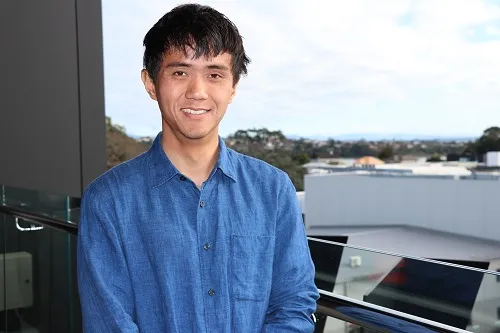Biogeochemist Dr Terry Isson’s latest research was published in Nature Magazine on 15 July. It tells the story of a delicate dance of organisms and chemical reactions responsible for maintaining the balance of CO2 levels in Earth’s atmosphere.
When life first evolved billions of years ago, Earth’s surface environment looked very different than today. The sun burned less brightly, but Earth remained warm enough to sustain water at its surface, says Dr Isson. This suggests that much higher CO2 levels would have been needed to keep early Earth warm enough.
His latest research paper: ‘A lithium isotope perspective on the carbon and silicon cycles evolution’, helps to explain why.

Dr Terry Isson
Dr Isson says there are two processes happening in our oceans that over time have helped maintain Earth’s CO2 levels and its temperature. Scientists call the processes “weathering” and “reverse weathering”.
When silicate minerals are broken down, silica and aqueous cations (water dissolved ions) are produced. If these ingredients lead to the formation of carbonate, they permanently remove CO2 from the environment. This process is called silicate weathering. Alternatively, if carbonates are not formed and conditions lead to the formation of marine clays, CO2 is released into the environment. This process is reverse weathering.
And it is all controlled by the silica secreting organisms in our oceans including sponges, diatoms (marine algae) and radiolarians (single cell eukaryotes).
Prior to ~550 million years ago silica secreting organisms were not yet prevalent in our oceans. Their absence allowed for more extensive marine clay formation, the process that releases CO2 into the atmosphere, says Dr Isson. He published that initial finding in a 2018 Nature Magazine paper, co-authored by Noah Planavsky, at Yale University.
“Before the evolution of silica-secreting eukaryotic life, early oceans were more silica-rich, and this would have fuelled more rapid rates of reverse weathering, releasing more CO2 into the atmosphere,” says Dr Isson.
Today, with more sponges and diatoms (marine algae) radiolarians present in our oceans there is less extensive reverse weathering happening and, as a result, more CO2 being removed from Earth’s ocean and atmosphere, he says.
Put simply, Dr Isson’s research suggests the success or demise of these silica secreting organisms in our oceans play a dominant role in regulating our climate on Earth.
Dr Isson’s research has seen him analyse rock samples spanning the last 3 billion years of Earth’s history, from more than 50 geologic sites around the world, stretching from the Grand Canyon to India.
Contained in these old rocks are records of the chemistry of seawater from the past. From these records he has unlocked stories of how the processes of weathering and reverse weathering have evolved over Earth’s history.
Simple mass balance calculations, using a lithium dataset, supports the framework he initially proposed in 2018; that evolution of silica secreting organisms drove a substantial decline in baseline CO2 levels on Earth.
“Understanding the global carbon budget in our oceans is an important area of study because by looking backwards into history we can work out how quickly these processes happen and better shape our view of the future,” he said.
Dr Isson is originally from Singapore but pursued his bachelor’ degree at the University of St Andrews, in Scotland where he became fascinated by geology and Earth’s early history. He completed his doctorate at Yale, where his first research paper on the subject was published. Dr Isson is now a Senior Lecturer in Geobiology and Marine Chemistry at the University of Waikato.
“I found the ideas and topics surrounding Earth’s history fascinating. The origins and evolution of different life forms, climate, and the oxygenation of our planet. It captured my imagination, understanding just how old our planet is and how much has changed throughout Earth’s history.”



